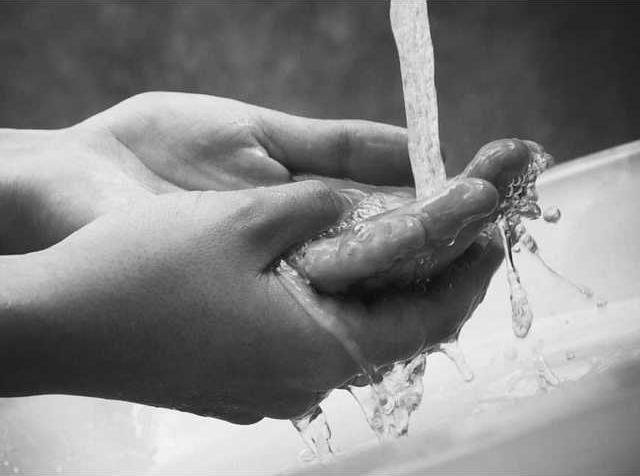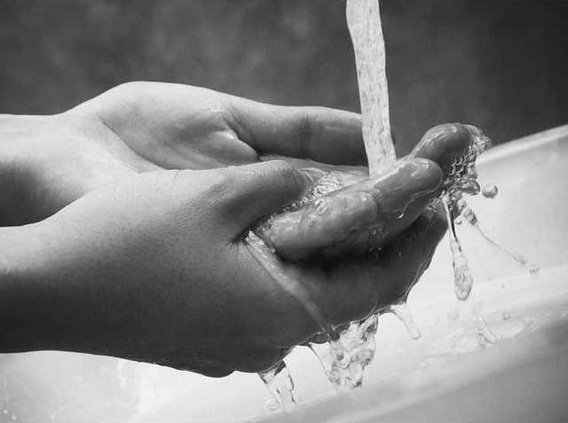Methicillin-resistant Staphylococcus aureus (MRSA) has been a problem in hospital and health-care settings since a strain of staph emerged in hospitals that was resistant to the broad-spectrum antibiotics commonly used to treat it. Tagged as a “superbug” by the media because of its multiple drug resistance, MRSA can cause serious, sometimes fatal, infections that resist treatment with all but a few drugs - some extremely rare strains are resistant even to those. This highly drug-resistant bacteria recently gained public attention when it was diagnosed as the cause of the deaths of a 12-year-old boy and several otherwise healthy school-age athletes.
Several types of staph bacteria are normally found on the skin or in the nose of some people at any given time. If you have staph on your skin or in your nose but aren’t sick, you are considered to be “colonized” but not infected.
Staph bacteria are generally harmless unless they enter the body through a cut or other wound, and even then they often cause only minor skin infections in healthy people. But even ordinary staph infections can cause serious infections in older adults and people who are ill or have weakened immune systems.
According to the Centers for Disease Control and Prevention (CDC), 25 to 30 percent of the population carry the staph bacteria and it is one of the most common causes of infection. Most of these infections are usually minor but the more invasive MRSA infections you are hearing about on the news, are more alarming because they are caused by drug-resistant staph and can become fatal.
Most forms of staph infections are preventable and physicians have been treating them for years. A red flag is when the redness around the skin infection is getting bigger or if there appears to be a lot of swelling around the wound. When these symptoms occur and the person has a fever, seek a physician’s attention immediately. The majority of the time these are things that can be treated with the same common sense approach that we’ve been using for years.
Symptoms of MRSA
• Skin infections that appear as pustules or boils where a cut or abrasion was first seen
• Infections that are red, swollen and painful pus or other drainage is present and commonly occur at sites of visible skin trauma, such as cuts and abrasions; and areas of the body covered by hair, such as the back of the neck, groin, armpit or male beard area.
MRSA is usually transmitted by direct skin-to-skin contact or contact with shared items or surfaces that have come into contact with drainage or pus from an infection such as towels or a used bandage.
MRSA skin infections can occur anywhere. Factors that make it easier for MRSA to be transmitted to others are known as the 5 C’s:
• Crowding,
• Contact (frequent skin-to-skin),
• Compromised skin (cuts or abrasions),
• Contaminated items and surfaces, and
• Cleanliness (or lack of)
You can protect yourself by
1. Practicing good hygiene (keep your hands clean by washing with soap and water or using an alcohol-based hand sanitizer and showering immediately after participating in exercise);
2. Covering skin trauma such as abrasions or cuts with a clean dry bandage until healed;
3. Avoiding personal items used by others (towels, razors) that come into contact with your bare skin; and using a barrier (clothing or a towel) between your skin and shared equipment such as weight-training benches;
4. Maintaining a clean environment by establishing cleaning procedures for frequently touched surfaces and surfaces that come into direct contact with people’s skin.
Most skin infections can be effectively treated by draining pus, cleaning the area with alcohol or soap and water, applying a triple antibiotic or neosporin ointment and covering the area with a bandage. If you have symptoms of MRSA (listed above), see your physician to get an antibiotic. Do not take antibiotics left from another illness or infection. Specific bacteria require antibiotics tailored to eliminate that particular germ. The wrong antibiotic will do nothing but give you a false sense of security. To prevent others from getting infected when you have an infected area (whether its diagnosed as MRSA or not):
Cover your wound. Keep wounds that are draining or have pus covered with clean, dry bandages until healed. Follow your healthcare provider’s instructions on proper care of the wound. Pus from infected wounds can contain staph, including MRSA, so keeping the infection covered will help prevent the spread to others. Bandages and tape can be discarded with the regular trash.
Clean your hands frequently. You, your family, and others in close contact should wash their hands frequently with soap and water or use an alcohol-based hand sanitizer, especially after changing the bandage or touching the infected wound.
Do not share personal items. Avoid sharing personal items, such as towels, washcloths, razors, clothing or uniforms, that may have had contact with the infected wound or bandage. Wash sheets, towels, and clothes that become soiled with water and laundry detergent. Use a dryer to dry clothes completely.
If it is MRSA, consult with your school about their policies and school precautions.
Staphylococcus (staph) bacteria, including MRSA, have been and remain a common cause of skin infections and local schools have policies in place for this. They also have the most recent CDC materials on this topic so they will know how to contain and eliminate infection. Unless directed by a physician, students with MRSA infections should not be excluded from attending school.
Exclusion from school and sports activities should be reserved for those with wound drainage (“pus”) that cannot be covered and contained with a clean, dry bandage and for those who cannot maintain good personal health.
Information for this article came from several sources to include CDC, GA Public Health and the Mayo Clinic.
Ratcliffe works with the Coastal Georgia Health Department

